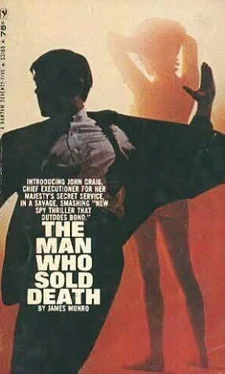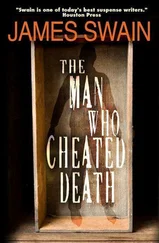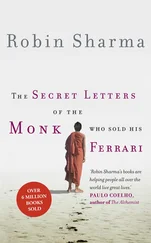James Munro - The man who sold death
Здесь есть возможность читать онлайн «James Munro - The man who sold death» весь текст электронной книги совершенно бесплатно (целиком полную версию без сокращений). В некоторых случаях можно слушать аудио, скачать через торрент в формате fb2 и присутствует краткое содержание. Жанр: Шпионский детектив, на английском языке. Описание произведения, (предисловие) а так же отзывы посетителей доступны на портале библиотеки ЛибКат.
- Название:The man who sold death
- Автор:
- Жанр:
- Год:неизвестен
- ISBN:нет данных
- Рейтинг книги:3 / 5. Голосов: 1
-
Избранное:Добавить в избранное
- Отзывы:
-
Ваша оценка:
- 60
- 1
- 2
- 3
- 4
- 5
The man who sold death: краткое содержание, описание и аннотация
Предлагаем к чтению аннотацию, описание, краткое содержание или предисловие (зависит от того, что написал сам автор книги «The man who sold death»). Если вы не нашли необходимую информацию о книге — напишите в комментариях, мы постараемся отыскать её.
The man who sold death — читать онлайн бесплатно полную книгу (весь текст) целиком
Ниже представлен текст книги, разбитый по страницам. Система сохранения места последней прочитанной страницы, позволяет с удобством читать онлайн бесплатно книгу «The man who sold death», без необходимости каждый раз заново искать на чём Вы остановились. Поставьте закладку, и сможете в любой момент перейти на страницу, на которой закончили чтение.
Интервал:
Закладка:
Three days after Charlie Green died, one came and was admitted at once. The office he went to was on the top floor, the most difficult to reach with a bomb or a bullet. On its door was written Colonel de St. Briac, Founder and President. Outside it was a man with an automatic carbine, and inside, a tall thin man in olive-green, who wore the epaulettes of a colonel in the office, although the French Army had long since dismissed him. He had the hungry strength and pale eyes of a fanatic, and he looked at his visitor with the dangerous calm of a man single-minded to the point of mania. At his feet an Alsatian crouched, watching the newcomer warily, waiting the word to kill. St. Briac tugged gently at its ear and it was still.
"Come in, Cadella," St. Briac said, and the visitor entered, stamped to attention, and saluted.
A big, chunky man, with a sallow face, neither French nor Italian. A Corsican, devious and deadly, standing now waiting for the praise that was his due.
"I've seen the English papers-you've done very well," St. Briac said.
Cadella stayed rigidly at attention.
"You may stand at ease," said the colonel, and was obeyed at once. Cadella, even in a business suit, could be nothing but a warrant officer in front of his colonel.
"Craig was the most difficult by far," St. Briac said, "and yet you succeeded the first time. That is good. That leaves us with Baumer and Rutter."
He rang a bell, and another, smaller man came in, another Corsican, wiry, neat in his movements. He smiled as he saw Cadella.
"A wonderful job," he said. "I congratulate you."
"Just two more wonderful jobs, and that particular annoyance is ended," said St. Briac softly, and Pucelli was silent at once.
"Rutter is captain of a ship called the Rose of Tralee now," said St. Briac. "It is due quite shortly in Trieste."
Pucelli said, "I request permission to meet him there."
"No," said St. Briac. "Ships are not very reliable as a means of transport. They are delayed by storm, or redirected. It will be better if Rutter comes to you." He produced a key, opened a filing cabinet, flicked through a row of files, and took out one marked Rutter.
"He will know soon," he said. "Perhaps he knows already. When he reaches port he will run-to you."
"You know where he will go then?"
"He will go to Geneva," said St. Briac. "He will call himself Altern and he will go to his bank there." He smiled. "He has a great deal of money. Watch the hotels -the big ones. No fuss, Pucelli. No bangs. Not this time. I don't want any fuss this time."
Pucelli bowed.
"That leaves Baumer," St. Briac continued. "It's likely that he'll go to Brazil. He has inquired at several travel agencies. I have a man here who is anxious to help us." He paused. "For money." He picked up an. internal telephone.
"I will see Cavalho," he said.
They waited in silence until the door was opened by the guard, and St. Briac's hand went to the dog, soothing him with impersonal tenderness. The man who came in was fat, sweating, soft, with small, shrewd eyes as black as prunes. He bobbed a neat, swift bow to St. Briac.
"How can I help you, Colonel?" he asked.
"You can find a man called Baumer for me," said St. Briac.
He went to the filing cabinet- once more and produced a photograph. "This man. He is forty-three years old. Jewish. Quite wealthy, I understand."
"And what do you want me to do with him?"
"I want you to kill him," said St. Briac, and Cavalho winced. "Or have him killed. He has all his money with him… A wealthy Jew. You can keep his money."
"If I find him," said Cavalho.
"You'll find him," said St. Briac. "If you don't, you'll lose fifty thousand francs.'" He paused. "Five thousand now to take you back to Brazil, forty-five thousand when I know he's dead."
He pulled open a desk drawer. It was unlocked, and crammed with money so tightly that bank notes spilled out of it on to the floor. PucelH stooped, and picked up five thousand-franc notes, crumpled them into a ball, and tossed it to the fat man, whose hand moved, darting to the magnetic tug of money, holding it tight as he stared at the fortune in the unlocked drawer. St. Briac smiled.
"You find it strange that the drawer is unlocked?" he asked.
"Forgive me," said Cavalho. "I merely wondered-if a thief should break in here-"
"He would be killed," said St. Briac. "Believe me, Cavalho, anyone who tried to cheat or rob me would be killed." He turned to Cadella. "Take him to the villa," he said. "Show him the sights. There are things he has to remember if he is going to do his best for us."
He walked up to Cavalho, and the fat man flinched, then gasped aloud as the colonel held out his hand, took his in its dry, hard grip.
"I will do my utmost," he began. "I assure you-"
"There is no need," St. Briac said. "I know you will find Baumer. You are greedy, and you want his money-and mine. You are also afraid of what will happen if you fail. You are right to be afraid."
He was dismissed, and Cadella took him out to the villa. He saw many things that frightened him, and one that made him vomit. When he left he knew that it was better to kill himself than to let down the colonel, and better still to kill Baumer.
›?‹ CHAPTER 5 ^
THE wireless operator of the Rose of Tralee took a message to the captain. Captain Rutter was asleep when the operator knocked but in one smooth movement he had rolled off his couch and was facing the door. He called "Come in," and took the flimsy the operator handed him.
"Regret inform you Mr. Craig killed in motorcar explosion. Gunter." He read it, and nodded.
The operator asked, "I suppose that must be the manager, sir?"
Rutter looked up at him, and the operator sensed the force in the small, neatly bearded man.
"Yes," said Rutter. "But why waste time sending cables here? We'll be in port this afternoon."
"Any reply, sir?"
"There can't be," said Rutter. "He's dead."
The operator left, and Rutter, very methodically, began to work out what he had to do. If they were waiting for him on the Genoa docks, he was finished. But Genoa wasn't on their original schedule. The Rose of Tralee had been rerouted there from Trieste. If they were still waiting for him at Trieste, he had a chance. He opened the ship's safe; inside was his survival kit; a Colt revolver, five thousand American dollars and a Central American passport. If he got a sufficient start, they should be enough.
The ship reached Genoa harbor that afternoon, and Rutter was able to go ashore in daylight, dressed in the civilian suit he always wore when he went to see the agent, Ponti, a fat, hospitable man, generous with his brandy. The first mate of the Rose of Tralee wasn't worried for at least three hours. Sessions with Ponti were always long ones and he wished he was there too, or in a nice, quiet restaurant away from the waterfront, eating pasta. After three and a half hours he felt anxious. After four he rang the agent, and heard that Rutter had never reached him. By the time the police arrived, Rutter was well on the way to Rome. By the time they had organized a search of the docks, Rutter was in an airplane, bound for Switzerland. The Genoese police were still looking for him when he landed at Geneva and went to his bank.
By then Gutter looked different. The name on his Central American passport was Altern, he was clean-shaven, wore an expensive Italian suit, and possessed three matched, lightweight suitcases, in addition to his briefcase. His bankers were delighted to see him, and offered him wine, the dry, light port they kept for the middle range of customers. Nothing, they assured him, would be easier than to transfer funds to Greece for him, if that was where he meant to settle for a while. Senor Altern thought he might take a place in the Greek islands, and the bankers were enchanted, and advised him to boil the water.
Читать дальшеИнтервал:
Закладка:
Похожие книги на «The man who sold death»
Представляем Вашему вниманию похожие книги на «The man who sold death» списком для выбора. Мы отобрали схожую по названию и смыслу литературу в надежде предоставить читателям больше вариантов отыскать новые, интересные, ещё непрочитанные произведения.
Обсуждение, отзывы о книге «The man who sold death» и просто собственные мнения читателей. Оставьте ваши комментарии, напишите, что Вы думаете о произведении, его смысле или главных героях. Укажите что конкретно понравилось, а что нет, и почему Вы так считаете.












